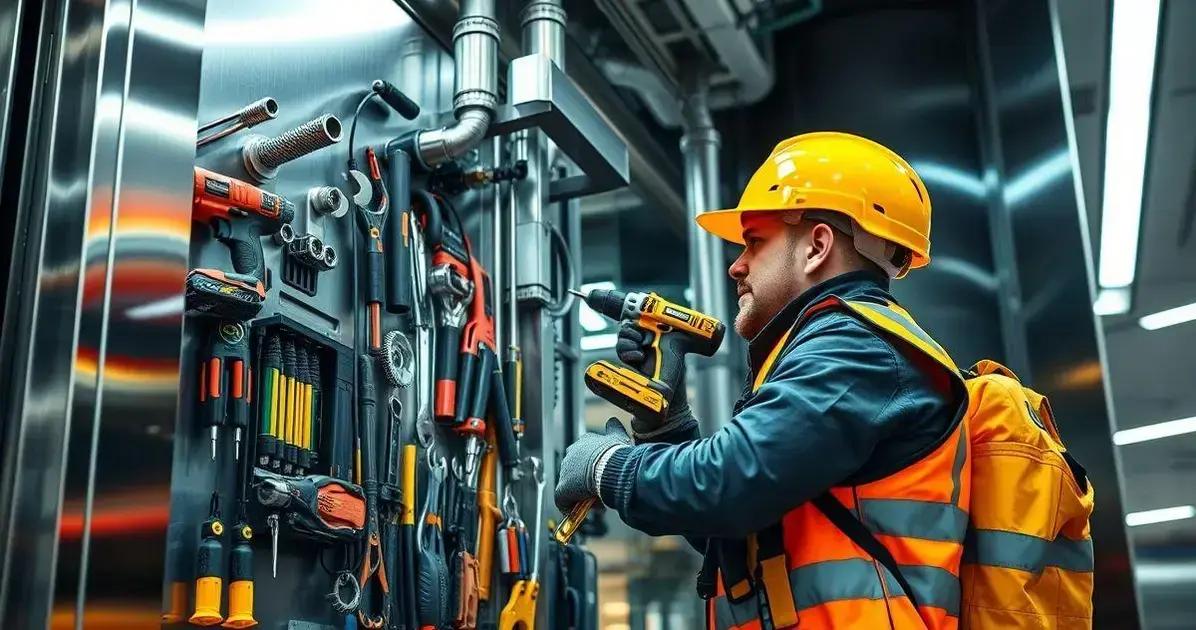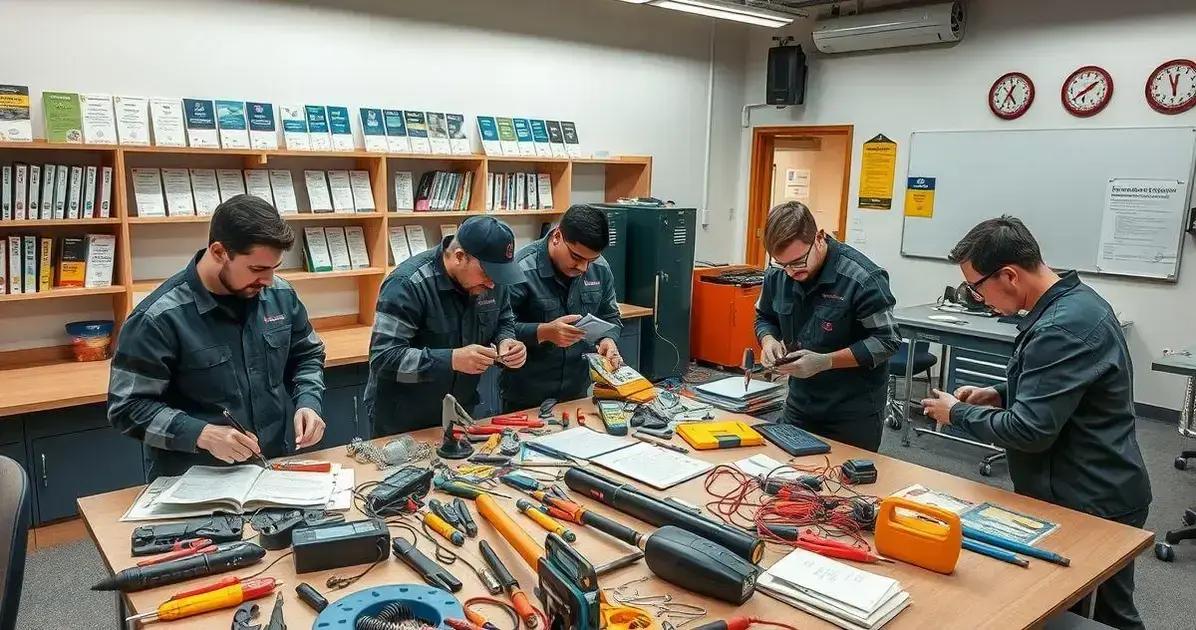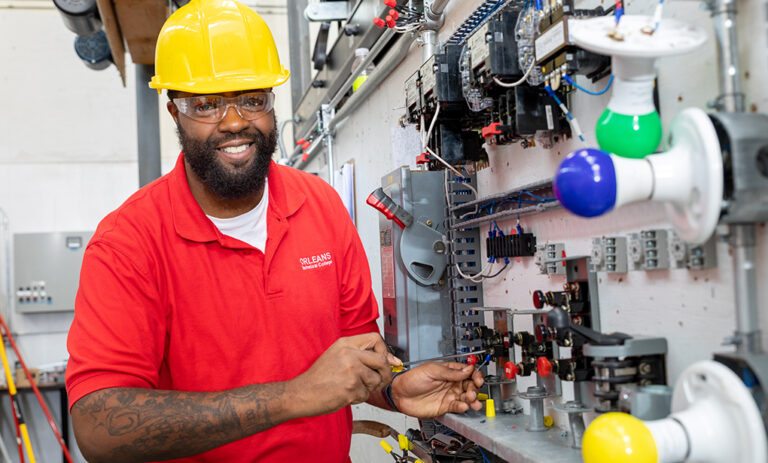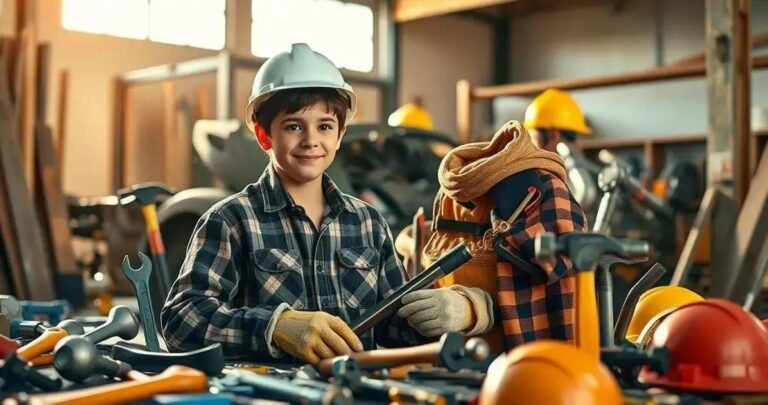Building Maintenance Skills: Essential Techniques Every Professional Should Master
Anúncios
In today’s dynamic world, **Building Maintenance Skills** are more critical than ever. Whether you’re managing a small facility or a sprawling complex, mastering these skills ensures longevity and safety. In this guide, we’ll explore essential techniques and strategies, from understanding basic skills to implementing advanced methods. Let’s unlock the potential of effective building maintenance, ensuring efficient operations and a safe environment.
Understanding Basic Building Maintenance Skills
Gaining a comprehensive understanding of basic building maintenance skills is crucial for every facility manager and maintenance professional. These skills ensure that buildings remain safe, functional, and efficient. At the core of these skills is the ability to identify and address minor issues before they escalate into costly repairs.
Routine Inspections and Preventive Maintenance
Regular inspections help identify wear and tear early. Establishing a preventive maintenance schedule can extend the life of equipment and building structures.
Minor Repairs and Adjustments
Basic skills involve the ability to make minor repairs such as fixing leaky faucets, replacing light bulbs, and unclogging drains. These tasks prevent larger issues from developing.
Understanding Building Systems
Knowledge of HVAC, plumbing, and electrical systems is part of basic maintenance skills. Being able to conduct initial diagnostics ensures quick and accurate repairs.
Accumulating these skills forms the foundation for more advanced maintenance techniques, ensuring safety and efficiency within any building.
Tools and Equipment for Building Maintenance

Having the right tools and equipment is essential for effective building maintenance. These tools ensure that maintenance tasks are performed efficiently and safely. A basic toolkit should include common hand tools such as screwdrivers, wrenches, pliers, and hammers. These tools allow for quick fixes and adjustments.
Power Tools for Larger Tasks
Power tools such as drills, saws, and sanders are necessary for more significant maintenance tasks. These tools help with repairs that require precision and power.
Specialized Equipment
Specialized equipment like multimeters for electrical testing and pressure gauges for plumbing are also critical. They help in diagnosing issues quickly, preventing further damage.
Safety Gear and Protective Equipment
Wearing appropriate safety gear such as gloves, goggles, and hard hats is crucial. They protect maintenance workers from potential hazards during maintenance tasks.
Using the right tools and equipment not only increases efficiency but also ensures that maintenance is conducted safely, aligning with top professional standards.
Safety Protocols in Building Maintenance
Adhering to strict safety protocols is vital in building maintenance to protect workers and clients alike. These protocols help prevent accidents and ensure a safe working environment. Key measures include proper training on equipment use and understanding emergency procedures.
Personal Protective Equipment (PPE)
Utilizing PPE like gloves, safety glasses, and helmets is essential for protecting workers from potential hazards. Each task may require specific protective gear to ensure maximum safety.
Hazard Identification and Risk Assessment
Regularly identifying and assessing potential hazards reduces the risk of accidents. This includes checking for electrical hazards, securing loose fixtures, and ensuring stable scaffolding.
Emergency Preparedness and Response
Having a clear plan for emergencies, including fire drills and evacuation routes, is crucial. Teams should be trained to respond promptly and effectively in any situation.
Implementing these safety protocols not only enhances workplace safety but also strengthens the overall integrity of building maintenance operations.
Advanced Techniques for Efficient Maintenance

Implementing advanced techniques in maintenance can dramatically boost efficiency and effectiveness. Predictive maintenance is key, utilizing data analytics to anticipate failures before they occur, reducing downtime and costly repairs.
Automated Systems for Monitoring
Automated monitoring systems provide real-time data about building systems. They alert maintenance teams to inefficiencies, ensuring swift corrective actions.
Integrating IoT Devices
Internet of Things (IoT) devices enhance building maintenance by offering detailed insights and facilitating remote management. They ensure systems run optimally without constant human intervention.
Software Solutions for Maintenance Management
Using specialized software for scheduling and record-keeping enhances coordination and tracking. This ensures timely maintenance and organized workflow.
These advanced techniques optimize the maintenance process, improve system longevity, and help maintain a high standard of building functionality and safety.
Troubleshooting Common Maintenance Issues
Efficiently troubleshooting common maintenance issues is an essential skill for any maintenance professional. Understanding how to approach problems logically and systematically is key to quick resolutions.
Identifying the Root Cause
Locating the root cause of a problem is the first step. This involves asking the right questions and examining the affected system closely, focusing on symptoms and signs of failure.
Utilizing Diagnostic Tools
Using diagnostic tools can expedite the troubleshooting process. Multimeters, thermal imaging cameras, and other specialized equipment can identify hidden problems in electrical and HVAC systems.
Step-by-Step Problem Solving
Adopting a step-by-step approach helps isolate issues. Test hypotheses by fixing one variable at a time, ensuring a systematic and effective resolution.
With these strategies, maintenance professionals can manage common issues efficiently, minimizing downtime and maintaining optimal building performance.
Training and Certification for Maintenance Professionals

Comprehensive training and certification for maintenance professionals ensures they are equipped with the necessary skills and knowledge for success. Certification programs focus on key areas such as HVAC, plumbing, and electrical systems, providing a well-rounded understanding.
Importance of Continuous Education
Ongoing education is vital. Staying updated with the latest technologies and techniques enhances problem-solving capabilities and improves efficiency.
Certifying Bodies and Programs
Various organizations offer certification programs, such as the International Facility Management Association (IFMA) and Building Owners and Managers Institute (BOMI). These programs validate a professional’s expertise.
Hands-On Training Opportunities
Hands-on training sessions allow professionals to apply theoretical knowledge in real-world scenarios. Apprenticeships and workshops provide valuable practical experience.
Through rigorous training and certification, maintenance professionals can advance their careers, ensuring they meet industry standards and excel in their roles.
Mastering Building Maintenance Skills for Success
Cultivating building maintenance skills is crucial for maintaining safe and efficient facilities. From understanding fundamental techniques to leveraging advanced methods, every aspect plays a pivotal role.
Using the right tools and equipment ensures that tasks are done accurately and safely, while following strict safety protocols protects both people and property. Continual education through training and certification leads to mastery, keeping professionals abreast of the latest industry standards.
Emphasizing troubleshooting skills and advanced techniques further boosts efficiency, minimizing downtime and enhancing performance across building systems. Together, these elements create a foundation for excellence in building maintenance, empowering professionals to excel in their roles.
With dedication to growth and learning, maintaining top-notch building operations becomes a reality.
FAQ – Common Questions About Building Maintenance Skills
What are the basic building maintenance skills everyone should know?
Basic skills include routine inspections, minor repairs, and understanding fundamental building systems like HVAC and plumbing.
What essential tools should maintenance professionals use?
Essential tools include hand tools like screwdrivers and wrenches, power tools, and specialized equipment like multimeters.
Why are safety protocols so crucial in building maintenance?
Safety protocols protect workers and occupants from accidents, ensuring a safe working environment through proper equipment use and emergency preparedness.
How can advanced techniques improve maintenance efficiency?
Advanced techniques like predictive maintenance, IoT integration, and automated monitoring enhance performance, reduce downtime, and optimize maintenance operations.
What is the importance of training and certification for maintenance professionals?
Training and certification ensure professionals are equipped with current knowledge and skills, maintaining high industry standards and enhancing career growth.






